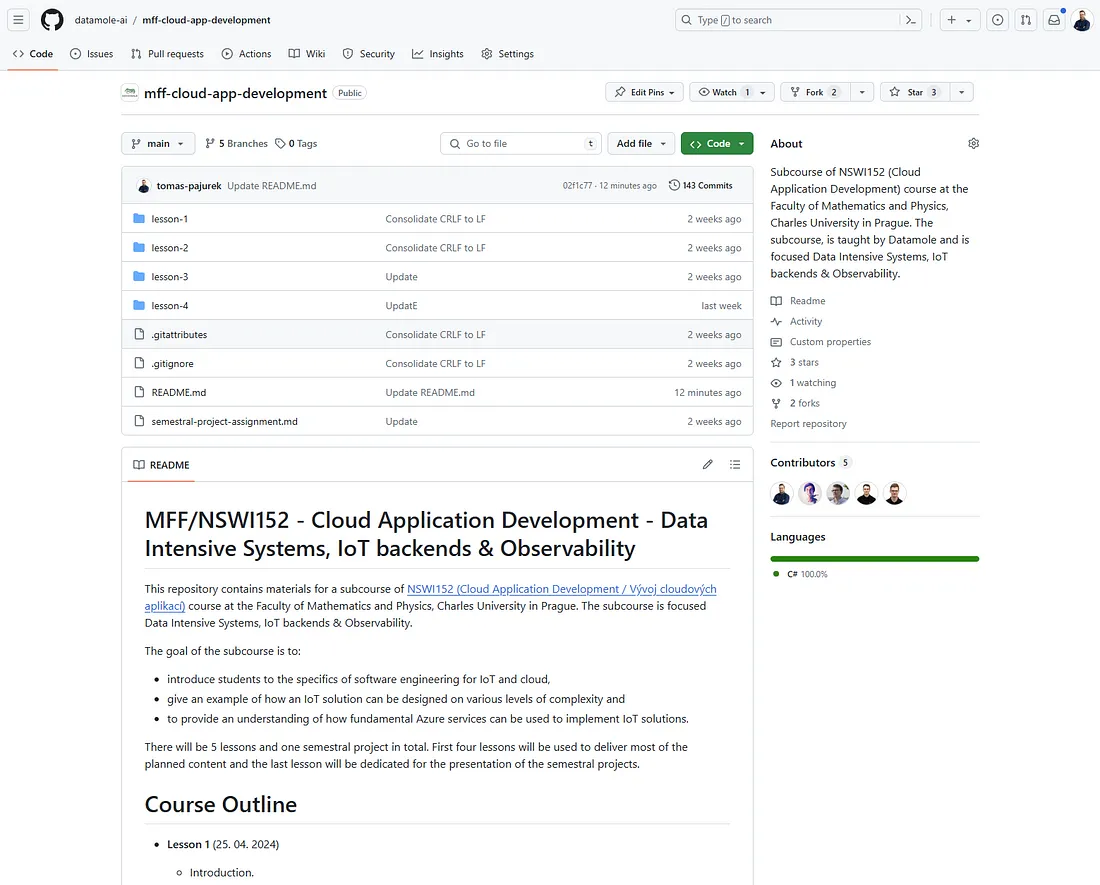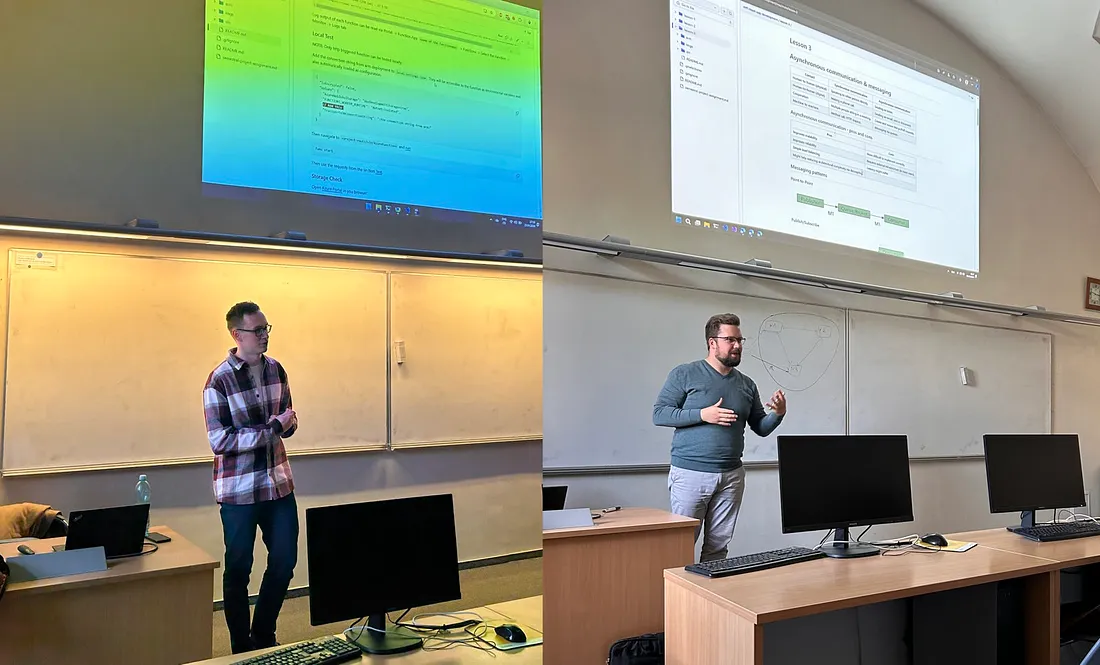
Spotflow academic activities in 2024
Our engineers follow their established 4+ year track record of teaching at leading Czech universities, which they started before Spotflow spun off from Datamole. Each year, we pass on our knowledge and experience in cloud architecture, data-intensive systems, observability, and IoT to computer science and software engineering students.
Based on the praising student feedback from previous years, we continue focusing on core principles in more depth instead of succumbing to the current hype while striving to put the theory into the context of the industry’s current state.
At which universities we teach
In April and May 2024, Tomáš Pajurek and David Nepožitek gave five lectures on cloud, data-intensive systems, IoT backends, and observability as part of the master’s course “Cloud Application Development” at the Faculty of Mathematics and Physics at Charles University in Prague.
Earlier this year, Tomáš Pajurek also lectured on “Principles of Cloud Systems Architecture” at the Faculty of Information Technology at Brno University of Technology as part of the “Modern Trends in Informatics.” course.
At the end of last year (2023), Tomáš Pajurek talked about “Data Storages in Microsoft Azure” at the Faculty of Information Technology at Czech Technical University in Prague.
What exactly do we teach
Our most significant contribution has been to the Faculty of Mathematics and Physics at Charles University in Prague, where we’ve participated in teaching the “Cloud Application Development” course. More specifically, in the past years, we gave three lectures each year focused on IoT backends for several years. In 2024, we extended our participation to five lectures with the following outline:
- Specifics of software engineering for IoT and cloud.
- Horizontal vs. vertical scalability.
- Partitioning & replication.
- Types, scalability, and economic aspects of various storages.
- Asynchronous communication, messaging.
- Observability, OpenTelemetry, Instrumentation and Troubleshooting of Cloud Services
- Overview of relevant Azure resources: SQL, ARM Templates, Storage (Tables, Blobs), Event Hubs, Service Bus, App Service & functions with HTTP and Event Hub trigger.
- Case study incorporating all previous topics and technologies.
At the end of our subcourse, students are tasked with creating a system architecture/design for a hypothetical cloud and IoT scenario. Our entire subcourse is publicly available on GitHub.
 Our entire subcourse is publicly available on GitHub
Our entire subcourse is publicly available on GitHubTeaching activities at other universities are less intense, with a single lecture each year. At the Brno University of Technology, we covered similar theoretical topics mentioned above but in less detail and without a case study. On the other hand, at Czech Technical University in Prague, we dived deeper into the specifics of Azure storage, including data models, consistency levels, reliability, security, and geo-distribution.
 Spotflow engineers teaching at Faculty of Mathematics and Physics at Charles University in Prague
Spotflow engineers teaching at Faculty of Mathematics and Physics at Charles University in PragueWhat’s next
So far, it seems that we have managed to strike a balance between too-theoretical academic courses on the one hand and excessively pragmatic and superficial courses taught by different companies on the other. Our engineers are very much enjoying this teaching style that they missed during their university years.
We hope this year’s students will find our lectures as valuable as those from previous years or more. If so, we look forward to repeating or extending the lectures next year.